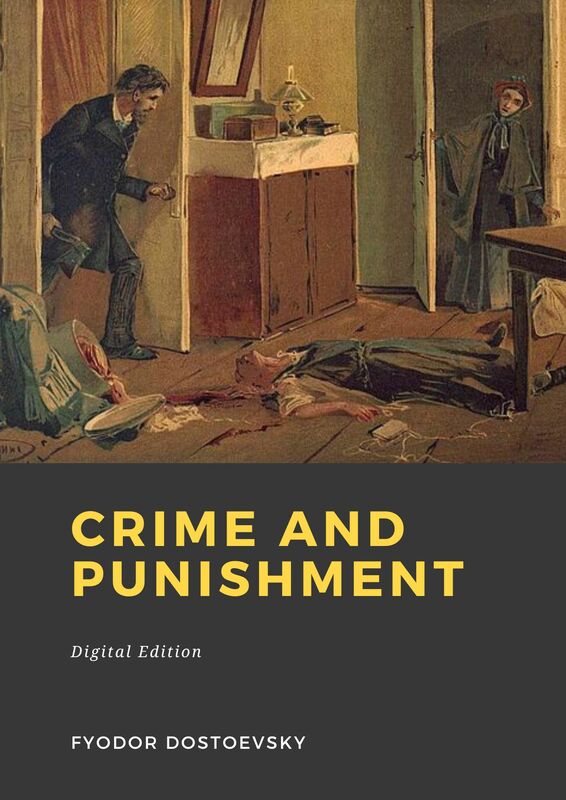
Crime and Punishment
Fyodor Dostoevsky
Crime and Punishment
Fyodor Dostoevsky
Fyodor Dostoevsky's "Crime and Punishment" is a gripping psychological masterpiece that delves deep into the tormented mind of its protagonist, Raskolnikov, and explores themes of morality, guilt, and redemption. Set in 19th-century St. Petersburg, Russia, the novel follows the impoverished and intellectually gifted former student, Raskolnikov, who becomes consumed by a radical idea. He believes that by committing a morally justifiable murder of a pawnbroker, he can alleviate his financial woes and prove his superiority over conventional morality. However, the act triggers a relentless inner turmoil. As the story unfolds, we witness Raskolnikov's descent into paranoia and madness, juxtaposed with the unwavering determination of the shrewd detective Porfiry to solve the crime. The novel masterfully explores the ethical consequences of Raskolnikov's actions and the impact on those around him, including the virtuous Sonia. Dostoevsky's writing is deeply introspective, drawing readers into the conflicted psyche of his characters. He examines the human condition with profound insight, raising questions about the nature of good and evil, the limits of human suffering, and the possibility of redemption. "Crime and Punishment" is a literary triumph that continues to captivate readers with its exploration of the darkest corners of the human soul. If you seek a novel that challenges your moral convictions and provides a riveting journey through the complexities of the human psyche, this classic work is an essential read.
A propos de l'auteur
Fyodor Dostoevsky, one of Russia's greatest novelists, was born on November 11, 1821, in Moscow. Raised in a family of physicians, he initially studied to follow in their footsteps but soon turned to literature. Dostoevsky's early works, like "Poor Folk" and "The Double," gained him recognition, but it was his masterpiece, "Crime and Punishment," published in 1866, that catapulted him to literary stardom. This novel delves into the moral and psychological turmoil of its protagonist, Raskolnikov, making it a timeless exploration of guilt and redemption. His other notable works include "The Idiot," "Demons" (also known as "The Devils" or "The Possessed"), "The Brothers Karamazov," and "The Gambler." These novels grapple with complex philosophical and psychological themes, earning Dostoevsky a reputation as a master of psychological fiction. Dostoevsky's life was marked by personal struggles, including brushes with death, imprisonment in Siberia, and financial woes. Despite these challenges, his literary output remained prolific, and he continued to shape Russian literature. He passed away on February 9, 1881, in Saint Petersburg, leaving behind a literary legacy that explores the depths of the human soul and the complexities of human nature. His works continue to be celebrated worldwide for their profound insights into the human condition.